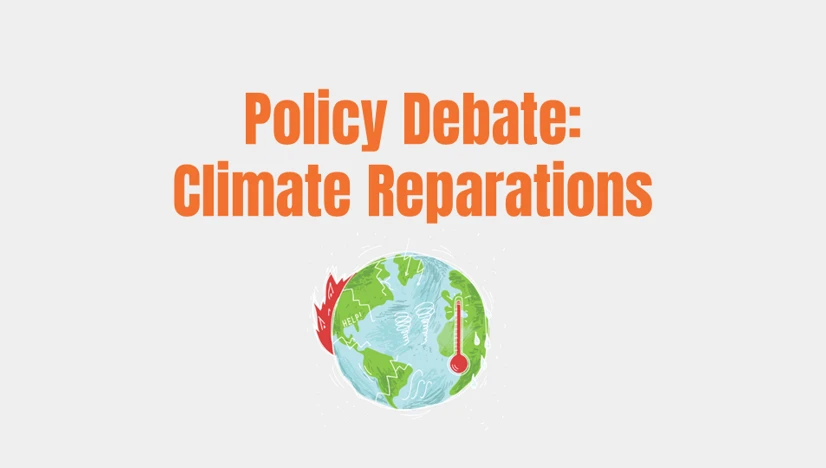Policy Debate: Climate Reparations - Economy Studies
 The Centre for Economy Studies works on improving and modernising economics education to ensure that students will be better prepared for their future careers and the societal challenges we face today and in the coming decades. The Essential Lectures are teaching packs designed for 90-minute (online or offline) sessions that can be added to existing courses. They help students become familiar with an important topic that is often neglected. Feel free to adjust the material to make it fit with your context and purpose.
The Centre for Economy Studies works on improving and modernising economics education to ensure that students will be better prepared for their future careers and the societal challenges we face today and in the coming decades. The Essential Lectures are teaching packs designed for 90-minute (online or offline) sessions that can be added to existing courses. They help students become familiar with an important topic that is often neglected. Feel free to adjust the material to make it fit with your context and purpose.
Why teach students about climate reparations?
Teaching economics students about climate reparations enriches their educational experience by providing real-world relevance, promoting critical thinking, fostering interdisciplinary learning, and equipping them with valuable skills for both academic and practical applications. It also encourages ethical awareness, global perspective, and civic engagement, aligning with the broader goals of education in preparing students to address complex global challenges.
Climate reparations are a pressing real-world policy debate that connects economic theory to practical, global challenges. Climate reparations is also a key issue being discussed at the COP28 in the form of the loss and damages fund, making this a highly current and relevant topic for students. This relevance can increase students’ motivation to learn and engage in discussions, as they can see the direct application of economic concepts to contemporary problems.
Climate change has significant economic implications, including damage to infrastructure, agriculture, and natural resources. Teaching students about climate reparations helps them understand the economic costs associated with climate change and the potential benefits of reparative measures in terms of preventing economic losses.
Economists play a crucial role in policymaking, and climate reparations are an emerging policy area. Teaching economics students about climate reparations equips them with the knowledge and skills needed to analyse, design, and advocate for policies that promote climate justice and sustainability.
This lecture explores the various aspects of climate reparations, what it is, where it stems from, and how it can work in practice. This meant that the issue of sovereign debt also needed to be addressed, as it is highly related to issues when it comes to mitigating climate catastrophes.
Find out more about the Rethinking Economics International campaign on Climate Reparations here.
Download Instructors Guide Download Slides



